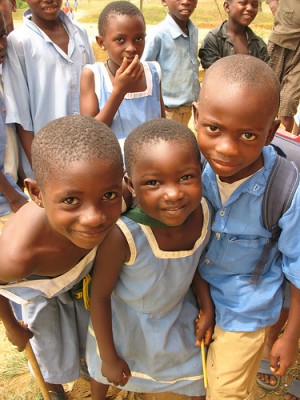“How can you be both Black AND American?”
Howard Alum Heather Faison is currently living in Buea, Cameroon, where she is teaching at a grammar school. She chronicled some of her experiences in a blog post titled, “For African Girls Who Considered White When Black is Enuf“. As someone of South Asian descent, her post resonated with me. Issues like colorism, identity and the yearning to look like everyone else are universal:
Black is not beautiful here. Women open umbrellas when the sun comes out for fear their skin will become darker. They use skin whiteners with chemicals so strong I often see light patches on their face and hands.
I came to Africa with this idealistic expectation of Black pride, natural hair and cultural unity….Then, one of the kids I teach asked the question that I have yet to shake:
How can you be both Black AND American?
I went to Howard University. That bears mentioning because at Howard, Pan-African themes are deeply woven in the fabric of the university. All students are required to study African-American history dating back to the transatlantic slave trade, and are quickly indoctrinated with Back to Africa theories drilled by professors in loud Kente fabrics.
And:
Reading books like Randall Robinson‘s “The Debt: What America Owes to Blacks,” I grew annoyed with minority status. I romanticized of what it would be like to live among people who looked like me and would embrace my sun-kissed skin and kinky coils.
In reality, African Americans are just as polarized in America as in Africa (Or at least in Cameroon). My appearance (dark skin, short hair) says I am African. My accent, walk, and mannerisms are all apple pie.
More of Heather’s words about Cameroon are here. (H/T Shani O.)





